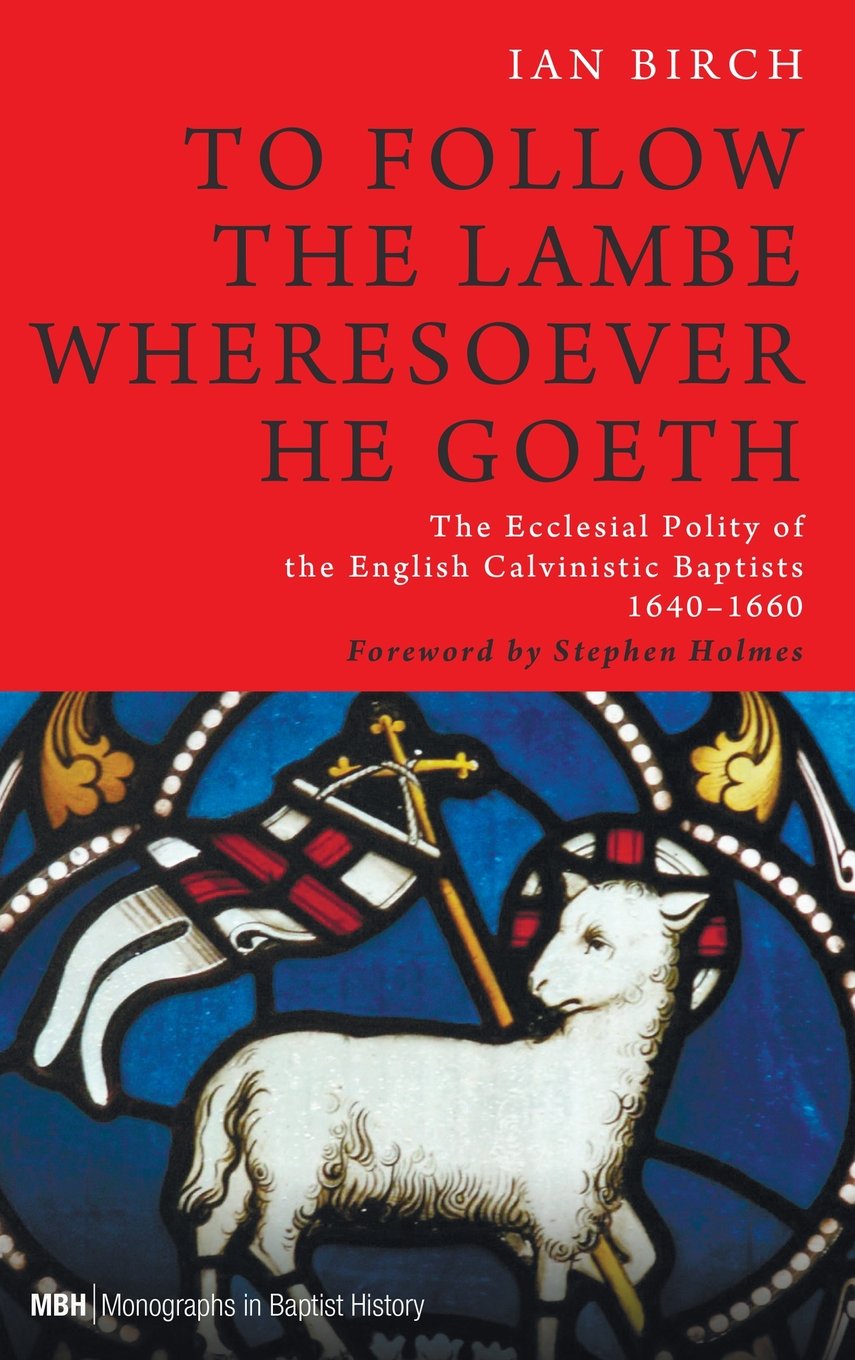Review by Andrew Ballitch
The 1640s and 1650s were a time of sustained upheaval in English society. They saw civil war, the execution of a king, and the rule of a military “Protector.” Amidst all the bloodshed and transitions of power, a debate raged over what the church should look like in England. One of the views that emerged from this ecclesiastical controversy was that of the English Particular Baptists. Ian Birch accounts for their emergence and expansion, as well as their theological convictions, arguing that “adherence to Scripture, as the canon of their ecclesiology, derived from a more foundational devotion, to the person, and rule, of Christ, the personal Lord of each believer, and rightful king of the church” (193).
Birch makes his argument in three movements. First, in chapter 1 he considers the historical context for the beginnings of the English Particular Baptists, a consideration that is foundational for his later theological analysis. The first church appeared in around 1641 out of a series of divisions in the semi-Separatist congregation founded by Henry Jacob. By 1644 seven Baptist congregations articulated their identity in the First London Confession. Through preaching, publishing, disputations, and missionary evangelism, their number grew to approximately 130 by 1660. The origins of the Particular Baptists are in the tradition of Puritan separatism. They were Biblicists and Calvinists.
Next, in chapters 2 and 3, Birch builds on the historical foundation he laid, describing the theological features of Baptist congregationalism in these years. The form of the churches was “sectarian and voluntarist, Reformed, congregational, prioritizing experiential faith and the visible church” (xix). People were admitted to the church on the basis of faith, repentance, and a believer’s baptism by immersion. To be baptized was to become a member of the community. Baptist ecclesiology sought to restore the church to its primitive state.
Chapter 3 is the central thesis of the book and Birch’s primary contribution to Baptist studies, namely, “the controlling dynamic of Baptist ecclesiology…was the express intention to organize a church according to the rule of Christ, Priest, Prophet, and King” (65). This provides the basis for describing ecclesiology in Christological perspective. Christ saves his people as priest and all other priestly ministry in the church is secondary and derivative from Christ. As prophet, Christ alone is the teacher of his people, thus, the regulative principle. As king, Christ secures the eternal safety of the saints and the righteous governance of the church. Christ’s rule over individuals is unmediated, therefore his rule, spiritual in nature, over saints corporately must be consistent with this—voluntary membership and congregational polity.
The remainder of the book, chapters 4, 5, and 6 consider the practical outworking of the core ecclesiological beliefs. Chapter 4 addresses church discipline, the biblical argument for it and its implementation in these early decades of Baptist life. Ultimately, authority is given to the local church for the glory of Christ and the purity of the body of Christ. Chapter 5 transitions to the practice of the ministry. Baptists championed lay preaching and pastors, affirmed the offices of elder and deacon only, and put ordination in the hands of the local church. While training was not necessary, ministerial gifts had to be recognized by the churches and pastors were set apart for ministry. Chapter 6 concludes by demonstrating that Baptist churches were not isolationist, rather they associated for advice, poor relief, loaning elders, and partnership in gospel work. They found biblical warrant for associations and believed that the command to love and cultivate unity extended beyond the local church.
Birch identifies the Christological priority of early Calvinistic Baptist ecclesiology, a welcome contribution to the field of Baptist studies. He is aware of big debates, such as Anabaptist kinship, relationship between General and Particular Baptists, and association with the Fifth Monarchists, but maintains focus on the thesis. Though he tends toward a distracting number of lengthy quotations, he helpfully puts together the fragmentary evidence into a historical and theologically rich narrative.
This book will appeal to anyone interested in Baptist or seventeenth-century English religious history. Birch sheds significant light on the origins of what has become the largest Protestant denomination in the world. Yet I think this book will also interest Baptists looking for a deeper understanding of their inherited convictions. Birch articulates, in an accessible manner, the development of Baptist distinctives, both exegetically and theologically. I highly recommend it.
Andrew Ballitch is Associate Pastor at Hunsinger Lane Baptist Church in Louisville, Kentucky, and a PhD candidate in church history and historical theology at Southern Baptist Theological Seminary.
